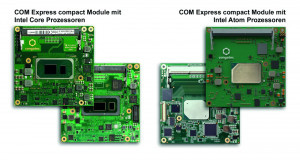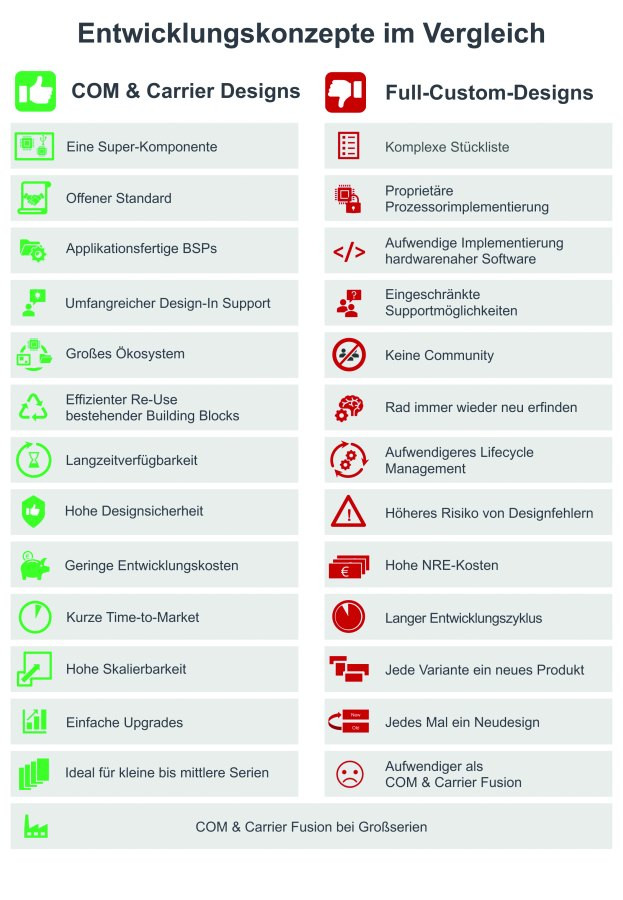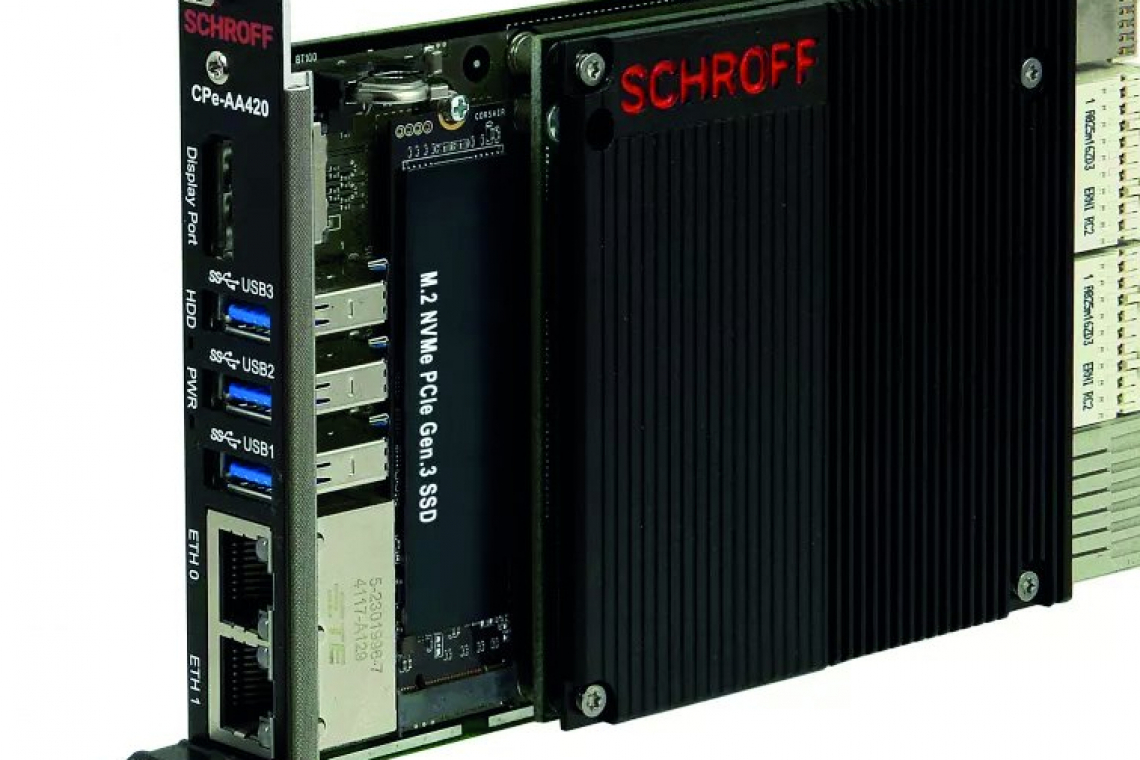PCI Express-based cards are often plugged together modularly to create test systems in electronics production. However, technicians who assemble such systems on a modular basis have so far lacked particularly narrow CPU cards in order to be able to pack more measurement cards into a system. nVent has now developed these in cooperation with congatec.
PXI users are experts in test and measurement systems. Their main focus is on the test software and the wide range of I/Os. The central controller modules are therefore more of a means to an end. They therefore often simply use a notebook or desktop PC, which they connect to the PXI measurement system, which only accommodates expansion cards. Or they use a PXI controller module. However, these are usually so extensive that they fulfill virtually all requirements across all applications and therefore often even exceed them. 3U CPU modules for PXI are therefore usually 8 or 12HP wide, although in principle controllers in 4HP would also be possible.
Less is often more
 The two carriers for COM Express Compact and Basic modules from congatec can already be supplied in 40 assembly variantsManycompanies deliberately use such extensive controllers in 8 or 12HP, as they can cover as many applications as possible. However, this only works as long as space is not a critical requirement. Or as long as the quantities per dedicated measurement system are not so large that every plug-in card has to be considered in order to save money. However, there are many applications where space is at a premium. For example, in 8-slot 3U systems. CPU modules with 8 to 12HP quickly block two to three slots, so that the system either has to be wider or only a few slots are available for expansion, which is not sufficient for many test and measurement tasks. It is therefore often desirable to be able to accommodate more I/Os in a small space so as not to have to build a two-storey system and thus take up more space in the rack. However, such a workaround has often been standard up to now. It is often addressed with adapter cards for the system slot. These run PCI Express lanes to the outside so that a normal notebook or desktop PC can be connected via standard external cables. However, such system designs are unwieldy and appear improvised - and are therefore ultimately only a workaround.
The two carriers for COM Express Compact and Basic modules from congatec can already be supplied in 40 assembly variantsManycompanies deliberately use such extensive controllers in 8 or 12HP, as they can cover as many applications as possible. However, this only works as long as space is not a critical requirement. Or as long as the quantities per dedicated measurement system are not so large that every plug-in card has to be considered in order to save money. However, there are many applications where space is at a premium. For example, in 8-slot 3U systems. CPU modules with 8 to 12HP quickly block two to three slots, so that the system either has to be wider or only a few slots are available for expansion, which is not sufficient for many test and measurement tasks. It is therefore often desirable to be able to accommodate more I/Os in a small space so as not to have to build a two-storey system and thus take up more space in the rack. However, such a workaround has often been standard up to now. It is often addressed with adapter cards for the system slot. These run PCI Express lanes to the outside so that a normal notebook or desktop PC can be connected via standard external cables. However, such system designs are unwieldy and appear improvised - and are therefore ultimately only a workaround.
Reaching the goal with COM and Carrier
To solve this space problem, nVent has developed a 3U 160 mm PXI carrier for COM Express Compact modules in collaboration with congatec. In a first step, it was optimized for the conga-TC175 in order to create a powerful and compact controller based on the 7th generation of Intel Core processors. Only the PCIe lanes required for the PXI Express system structure were routed to the backplane. On the front panel, the slim platform only offers a DisplayPort for screen connection, three USB interfaces and two Ethernet interfaces, and the feature set is completed with an M.2 slot for fast SSDs. This has enabled nVent to create an extremely slim - but powerful - PXI SBC that concentrates fully on the core functions required for a central CPU unit in a PXI system. Thanks to the modular design, customers can now choose any Intel Core processor configuration to suit their needs, with a maximum TDP of 15 watts. This allowed the module to be built very flat in order to comply with 4TE including cooling.
 Development concepts in comparison: advantages of Computer-on-Modules at a glance
Development concepts in comparison: advantages of Computer-on-Modules at a glance
Diversity is the program
The range has now been expanded to include a variant with the conga-TS370 in COM Express Basic format, which currently allows Intel Core processor technology up to 6-core solutions of the eighth generation and thus also enables system setups - even with virtual machines. This high scalability without redesign, even across processor generations, is a huge advantage for users, as the performance of the controller can only be scaled by exchanging modules. Individual variants for larger test fields can also be implemented with justifiable time and cost expenditure thanks to the COM and carrier principle. This makes COM Express-based controller modules for PXI systems a very attractive offer, which solution providers of full-custom PXI controllers could probably only implement more cost-effectively in mass production. New processors can also be implemented more quickly, as modules are often the first products to become available with the latest embedded processor technology. The slim design is also ultimately more cost-effective than fully developed 8TE or 12TE SBCs. Customers also benefit from the modular approach, as they can ultimately scale across the modules based on the carrier and thus better balance price and performance to the real measurement task, as there are significantly more variants within a module series of a processor generation than a PXI CPU board manufacturer could ever offer with full custom designs. All in all, this is a very attractive approach for customized test and measurement systems in electronics production.
Further prospects
nVent also sees potential for offering the modular design of the test and measurement range controller for the AXI and VXI standards. Together with the top dog standard PXI, they account for around 78% of the modular instruments market, which is expected to reach a whopping USD 3.11 billion by 2027 [1]. A not inconsiderable proportion of this is in demand in the electronics and semiconductor industry.
www.congatec.com
https://schroff.nvent.com/de-de/


